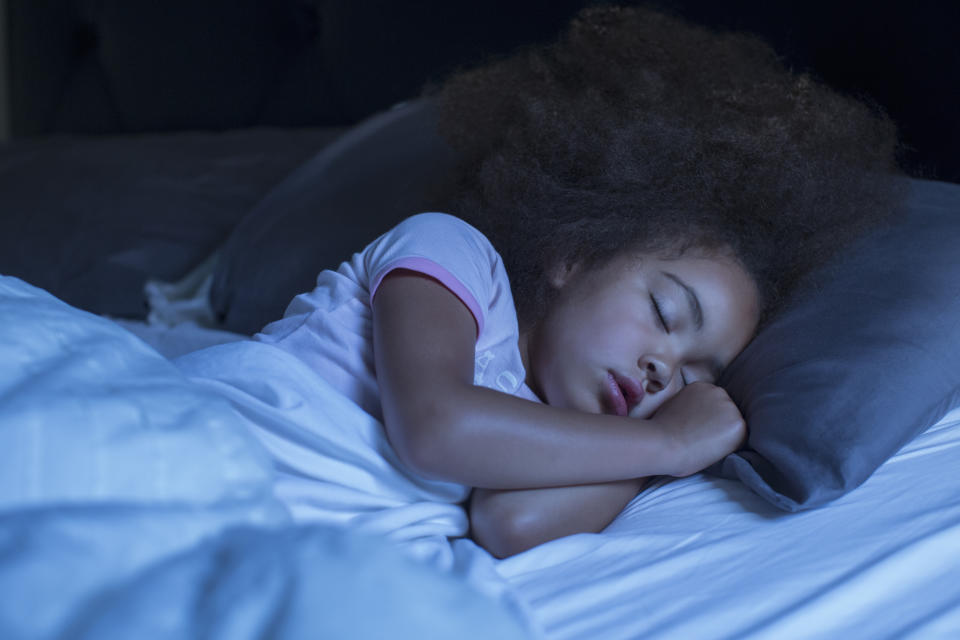Some hyperactive kids may actually have sleep apnea, not ADHD

Attention deficit hyperactivity disorder (ADHD) is one of the most common diagnoses in children. Sometimes, however, signs like impulsivity and attention problems might be the result of a sleep condition instead.
Melody Yazdani, a Vienna, Va. mom, recently told CTV that doctors suggested that her grade 1 son’s temperamental outbursts were due to ADHD. She wasn’t convinced — and was also troubled by the dark circles under her son’s eyes. Then she came across information about sleep apnea, which she said described her child “word for word.”
The little boy had surgery to remove his tonsils and adenoids, to dramatic effect.
“His behaviour improved drastically,” Yazdani said. “He no longer had tantrums in the morning.”
Sleep apnea is a potentially serious disorder in which breathing repeatedly stops and starts during sleep. Some people will still feel tired after getting a full night’s rest.
The condition can be mistaken for ADHD in kids because of common symptoms, such as appearing irritable and distracted.
ALSO SEE: Mom realizes her son’s ADHD symptoms were actually caused by sleep deprivation
Dr. Indra Narang, director of sleep medicine at Toronto’s Hospital for Sick Children, says that the most common causes of sleep apnea are big tonsils, large adenoids (a mass of enlarged lymphatic tissue at the back of the nasal cavity) and obesity.
“Sleep apnea results in drops in oxygen levels and brain awakenings, ultimately causing sleep fragmentation and sleep deprivation,” Narang tells Yahoo Canada. “It is this sleep deprivation that is the cause of symptoms such as disruptive behaviour, hyperactivity, and daytime sleepiness.”
However, to make matters more complicated, some children will have no daytime symptoms at all.
A study published in the European Journal of Pediatrics in 2012 found that about 10 per cent of European children between the ages of six and eight have sleep apnea.
Dr. David Wensley, an investigator at B.C. Children’s Hospital in Vancouver, says that approximately 20 to 25 per cent of children who visit the sleep laboratory there are referred because of behavioural problems. Of those, almost half will be found to have sleep apnea.
“Teachers will often describe [these] children as not able to concentrate well and seeming to tend have short attention spans,” says Wensley, who’s also a clinical professor in the faculty of medicine at the University of British Columbia. “They will be easily distractible, sometimes to the extreme where they’re acting out and irritable and have problems being able to settle and work within groups. It’s not that dissimilar to things we see with attention deficit disorder.”
He stresses that, while in no way are sleep problems to blame for all behavioural issues, it’s important to look at a child’s sleep if he or she is showing having trouble focusing or staying calm.
To determine whether a child has sleep apnea, doctors will look for key signs such as disturbed sleep, snoring, or pauses in breathing during sleep.
An initial otolaryngology assessment (of the ear, nose and throat) will look for airway obstruction due to tonsils or adenoids. Often, removal of one or both is an effective treatment, as in Yazdani’s son’s case.
ALSO SEE: Hefty price of sleep apnea machines tying up hospital beds
About five per cent of kids with sleep apnea, Wensley says, will be treated in the same way as adults, through continuous positive airway pressure (CPAP). People wear a face mask while sleeping that’s connected to a pump that forces air into the nasal passages at pressures high enough to overcome airway obstructions and stimulate normal breathing.
Parents who are concerned about their child’s breathing at night and parents of kids who snore should see a doctor, who can decide whether a sleep study test is required, Narang says.
“Getting a good night’s sleep both in duration and quality is important for physical, mental and psycho-social well-being for adults and children,” she adds.
Diagnosed conditions aside, Wensley reminds that kids need to be taught how to sleep; it’s not something that babies and young children simply pick up. No wonder there are so many parenting books on the subject.
“Sleep is something that we learn to do within a social context,” he says. “Even in children with relatively mild behavioural abnormalities, it’s quite common to have a disrupted sleep pattern…. Sleep is a learned behaviour.”
Let us know what you think by commenting below and tweeting @YahooStyleCA!
Follow us on Twitter and Instagram.
Check out Yahoo Canada’s podcast, Make It Reign — our hot takes on all things royals in a non-stuffy way — on Apple Podcasts and Google Podcasts.

